Believe in Your Dreams:
It is completely normal to feel homesick sometimes when we are far from home. Homesickness comes from feeling disconnected from people, places and routines. It is an emotion that passes with time. Remember: It.is.normal.
Here are some things to do if you are feeling a little blue:
- Be a tourist, get to know where you live, visit the local sights and explore just as you would if on vacation. Start a list of favorite places. Check out the blog for ideas.
- Plan a trip with a friend, a day trip or a weekend, get excited about doing something new with a new friend and before you know it you will be excited and chatting about the trip instead of talking about what you are missing at home.
- Post in the cluster Facebook group that you are off on Saturday or Sunday and that you are looking for a buddy to hang out with! Don’t wait for someone else to plan it, take the initiative!

- Go to your cluster meeting. It’s not just a requirement of the program, it’s a beneficial part of your experience. Cluster meetings are a great way to meet new friends and get a hug and support!
- Not everything has to change. If you loved jogging at home, do it here. There are some habits you love that you can keep. Played soccer at home? Love basketball or singing or digital photography? Ask me, I can help you find activities within the community to join!
- Create a routine. Having a routine will help you feel at home and settle into life here. It’s tempting to sleep in on the weekends, but you’ll miss out on fun! It’s okay some times, but remember, you only have 52 weekends here! Make the most out of them!
- Get enough sleep! Go to bed at a reasonable time. Planning a quiet activity for the hour or so before bed can help you establish and maintain good sleep habits.
- Get involved in activities that will help you meet Americans! Other than classes, consider finding a church with a young adult group, volunteer, join an interest group! Building friendships is important and you will have a richer cultural exchange as a result!
- Do not stay home. Get out and about, go to the gym, the park, a coffee shop, a movie, staying home alone will not help homesickness.
- Tell your me that you are feeling homesick. I can help you! It may be a first for you, but it isn’t for me. I can help connect you with another au pair who was also homesick. There’s nothing better than talking to someone who has been in your shoes.
- Start an American Dream album on Facebook, write your memories in a private blog, save a few special reminders – ticket stubs, postcards, small souvenirs, etc. from your year. It will give you something to work on when you have quiet time alone and as your year progresses you will be able to see what an amazing experience you are having. You’ll have a wonderful keepsake to have of you year (or two).
- Most importantly, talk to someone, if you feel sad or homesick, talk to your host family, call me, or a friend. Being part of a cluster enables us to help and support each other.
- If you aren’t homesick, reach out to others who you think might be. Be a friend. We were all new once. That new girl nearby would love for you to pick her up and go to a movie or for coffee or ice cream. Dare to be bold. Dare to be fearless!
- Keep the circle wide open for everyone to join in. Building friendships with people outside of your culture will richly reward your year here and your life in general. It’s a wonderful thing to watch au pairs maintain their cross cultural friendships after they go home.
A little inspiration from a former au pair… https://www.youtube.com/watch?v=H3IBmRWGnwA
|
www.youtube.com
Yuhuu, mit “Try” ist mein erster eigener Song mit meinem tollem, höchst “professionellem” Video online! 🙂 Eingespielt und aufgenommen wurde der Song im schö…
|
||

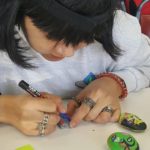
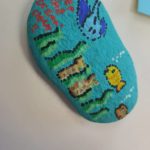


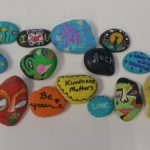

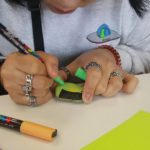



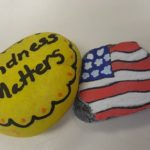





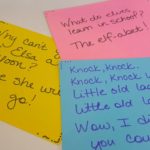
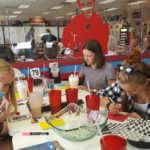
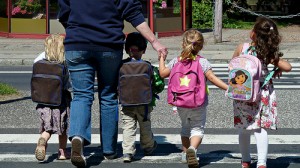
 Almost everyone experiences homesickness and culture shock to some degree, when they come to live in a completely new environment. So much is different and it takes time to adjust.
Almost everyone experiences homesickness and culture shock to some degree, when they come to live in a completely new environment. So much is different and it takes time to adjust.

 Dehydration means that the body lacks the necessary amount of fluid. Infants and small children are more likely to become dehydrated than older children or adults, because they can lose relatively more fluid quickly.
Dehydration means that the body lacks the necessary amount of fluid. Infants and small children are more likely to become dehydrated than older children or adults, because they can lose relatively more fluid quickly.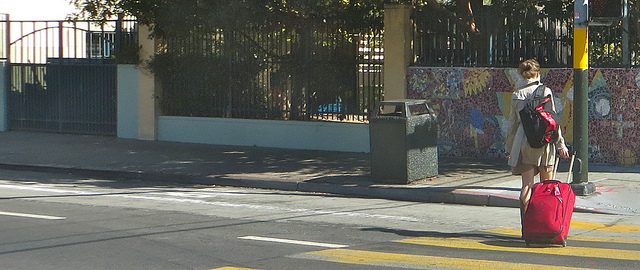
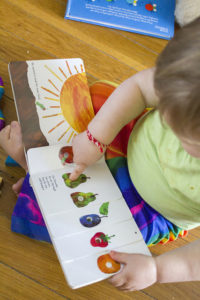 Being an au pair is an important role in a child’s life. When you are caring for a young child up to 45 hours per week, there are lots of opportunities to help them learn language. Many host parents are eager for their children to be exposed to foreign language. If this is true of your host parents, you can try the suggestions below, in both English and your native language.
Being an au pair is an important role in a child’s life. When you are caring for a young child up to 45 hours per week, there are lots of opportunities to help them learn language. Many host parents are eager for their children to be exposed to foreign language. If this is true of your host parents, you can try the suggestions below, in both English and your native language.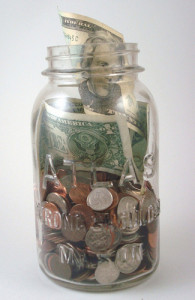 Host parents often ask for suggestions on how best to handle common expenses that occur as au pairs are caring for the children.
Host parents often ask for suggestions on how best to handle common expenses that occur as au pairs are caring for the children.